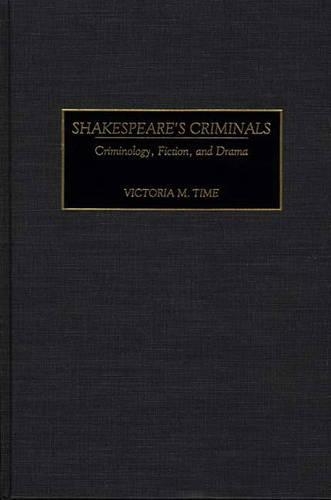
Shakespeare's Criminals: Criminology, Fiction, and Drama
(Hardback)
Publishing Details
Shakespeare's Criminals: Criminology, Fiction, and Drama
By (Author) Victoria M. Time
Bloomsbury Publishing PLC
Praeger Publishers Inc
30th November 1999
United States
Classifications
Tertiary Education
Non Fiction
Literary studies: plays and playwrights
Literary studies: c 1600 to c 1800
Jurisprudence and general issues
822.33
Physical Properties
Hardback
192
Width 156mm, Height 235mm
482g
Description
By exploring Shakespeare's use of the themes of law and justice in the context of historical and contemporary criminological thinking, this book challenges criminologists to expand their spheres of inquiry to avenues that have yet to be explored or integrated into the discipline. Crime writers, including William Shakespeare, were some of the earliest investigators of the criminal mind. However, since the formalization of criminology as a discipline, citations from literary works have often been omitted, despite their interdisciplinary nature. Taking various Shakespeare plays and characters as case studies, this book opens theoretical avenues for conceptualizing crime and justice issues. What types of crimes did Shakespeare's characters commit What were the motivations put forth for these crimes What type of social control did Shakespeare advocate By utilizing a content analysis procedure, the author confirms that many of the crimes that plague society today were also prevalent in Shakespeare's time. She gleans 12 criminological theories as motivations for character deviance. Character analysis also provides valuable insight into Shakespeare's notions of formal and informal social control.
Author Bio
VICTORIA M. TIME is Assistant Professor of Criminal Justice at Old Dominion University./e
